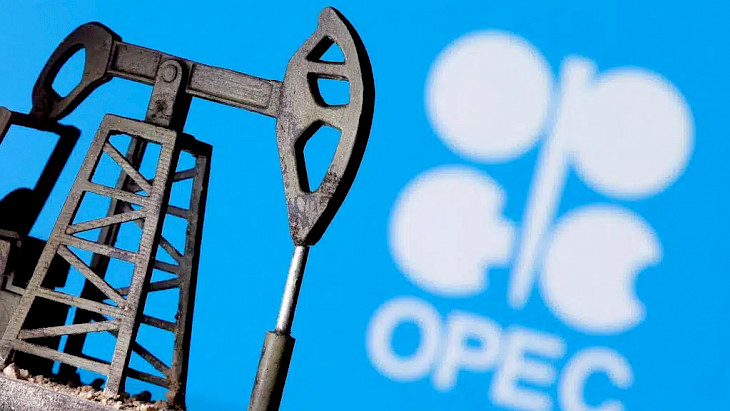In 2025, Kazakhstan may become the next "internal enemy" of OPEC+, as it seeks to increase oil production following the expansion of the Tengiz and Karachaganak fields, potentially conflicting with the cartel's existing quotas. This opinion was expressed by Bloomberg columnist Javier Blas, reports the Kazakh portal Kursiv.
Blas identifies external threats to OPEC+ as weak oil demand, increased production by competitors, and a potential victory by Donald Trump in the U.S. presidential elections, who has promised to ease restrictions on oil companies. Internal threats, according to the columnist, have historically included cartel members like Algeria, Iraq, and the UAE, which invested heavily in developing new fields and sought to recover these investments by increasing oil production.
In 2025, Kazakhstan is expected to take on this role. The first phase of the Karachaganak field expansion project was completed in early September, with the second phase scheduled for 2026. The Future Growth Project at the Tengiz field is also expected to launch in the first half of 2025, having been repeatedly delayed from its original mid-2022 target.
“For nearly a decade since OPEC+ was established in 2016, Kazakhstan has been a challenging partner for the cartel, often producing oil above its quota. This issue will intensify next year when a $45 billion project to expand the country's largest oil field is completed,” writes Blas.
In early November, Kazakhstan, along with other countries, extended voluntary oil production cuts for one more month, through the end of December 2024. A phased rollback of these cuts was initially planned for 2025, but OPEC+ delegates have indicated there may be another delay, though official negotiations have yet to begin.
“If the cartel agrees to further delays, it will deal a significant blow to Kazakhstan. If the country adheres to its OPEC+ production limits, it won’t be able to produce additional oil despite substantial investments. It would have to reduce production in other areas to offset the increase from Tengiz. From an economic standpoint, Kazakhstan would likely choose the latter, as Tengiz has the lowest production costs, making it highly profitable for the government and its foreign partners,” Blas notes.
As an alternative, Kazakhstan might disregard OPEC+ restrictions. The country has already done so in recent months, leading to tensions between Astana and the cartel. Further production increases could exacerbate the issue. In 2021, the UAE temporarily blocked a deal for several days, while Angola and Qatar exited the cartel entirely. The risk is that Kazakhstan could follow suit, posing significant challenges to OPEC+ on multiple fronts in 2025.
In February, OPEC forecasted Kazakhstan's average daily oil production at around 1.9 million barrels in 2024 and 2 million barrels in 2025. In October, Kazakhstan produced 1.29 million barrels per day, 90,000 barrels above its target. According to the Ministry of Energy’s forecast, Kazakhstan will produce 88.4 million tons of oil by the end of 2024, slightly below the previously expected 90.3 million tons, with exports estimated at around 68.8 million tons.
Some OPEC+ members, including Kazakhstan, have committed to fully offsetting overproduction from January 2024 by September 2025. In late summer, Kazakhstan updated its compensation plan for overproduction in the first half of 2024, amounting to 699,000 barrels per day.
CentralasianLIGHT.org
November 25, 2024

